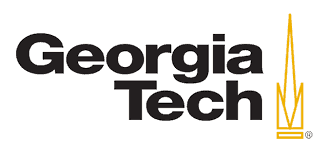When business students research potential schools to seek undergraduate, graduate, and doctoral degrees, they typically take note of a school’s accreditation, reputation, tuition rates, and curriculum. But what about matters of environmental sustainability? Today, many business schools have prioritized “go green” in their programming, philosophy, and facilities. Because sustainability continues to be a priority in business and society, organizations prioritize seeking ways to socially and environmentally responsible. Because of this, top green business schools are investing in environmentally conscious buildings, systems, and offering degrees which feature specializations in sustainability.
Best Green Business Schools
A business school’s “greenness” goes a lot further than offering undergraduate through doctoral programs that bend toward sustainability – they also plan ways for their campuses and buildings to be energy efficient and responsible. While renovating, some business schools will choose to use locally sourced building materials. It is also common to find sustainability-focused student groups in business schools. Since environmentalism and sustainability are here to stay, here are 50 of the nation’s best green business schools.
Methodology
Our ranking of the Best Green Business Schools ranks the top business schools in the country that are focused on and invested in environmental sustainability. We collected a list of business schools based on their STARS rating, U.S. Green Building Council Membership, and inclusion in the Princeton Review’s Green Colleges Ranking. This data was combined and each school was given a Green Score. Business schools were then listed based on their College Consensus Score. This score combines data from five top MBA and business school ranking systems: Forbes, The Financial Times, Bloomberg Businessweek, The Economist, and U.S. News and World Report.

Stanford University delivers the nation’s top green business school at the Graduate School of Business. The business school’s mission is to create ideas that advance and deepen students’ understanding of management and apply them while developing innovative, principled, and insightful careers. Stanford GSB believes in the spirit of endless possibilities as it challenges conventional thinking, invites and embraces diverse ideas, and collaborates to change the world. Every element of the Graduate School of Business Knight Management Center reflects its commitment to existing as a leader in environmental sustainability. The innovation can be seen in the architecture. Planners knew the GSB needed a more versatile facility, one that adapts easily to inevitable change and offers the flexibility its collaborative academic style requires. Half of the site is open space and landscaped with drought-tolerant native plants. An underground parking facility improves the “heat island” effect of typical asphalt parking lots, while carpool and low-emission cars receive priority parking. These are just a few ways Stanford leads the way in prioritizing sustainability in higher education.

The University of Pennsylvania delivers one of the nation’s greenest educational experiences at the Wharton School. Wharton is committed to changing the way business is done. Its faculty, students, and alumni generate ideas, back them up with analysis, and turn them into ingenious business solutions. The business school’s purpose is to educate, inform, and inspire leaders who are meeting the world’s complex issues, advancing business practices, and driving economic development at a global scale. Known by many as the “World’s First Business School,” Wharton has been where visionaries, inventors, and trailblazers have gotten their start for over 135 years. American industrialist and entrepreneur Joseph Wharton founded the world’s first collegiate business school at the University of Pennsylvania. Since then, the Wharton School continues to innovate to meet mounting global demand for fresh ideas, deeper insights, and transformative leadership. Its MBA Major in Business, Energy, Environment, and Sustainability is designed to equip business students with in-depth foundations in the complex relationships between the natural environment and business, management of environmental risks, and energy economics. This degree is a must for MBA students interested in sustainability.

The Kellogg School of Management at Northwestern University is one of America’s best green business schools. Since the early 1900s, the Kellogg School of Management has been on the cutting edge of transforming business education. Kellogg is a business school with a vibrant community of faculty, students, alumni, and staff who shape the practice of business and organizations worldwide. It brings a blend of practice and theory to its rigorous academic experience, creating a dynamic learning and research environment. The Kellogg Purpose is to equip, inspire, and educate brave leaders who build healthy organizations and wisely leverage markets’ influence to create lasting value. The Energy & Sustainability Pathway offers graduate business students a map to curricular resources for leading organizations in natural-resource-based industries, including energy, mobility, food, and agriculture. The pre-selected courses build on the core MBA curriculum as a base and offer extensions that allow students to develop expertise in the economics and strategy of sustainable investing, energy markets, corporate sustainability, and entrepreneurship. Kellogg is an ideal choice for sustainability-minded students.

One of the nation’s best green business schools is the Massachusetts Institute of Technology’s Sloan School of Management. MIT Sloan is marketed as a different kind of management school. It’s not cashing in on the latest business fad or iterating on a better widget. It does not talk about management in the abstract. Linked to the world’s leading research institution, it is bringing together today’s brightest thinkers to tackle global issues. At the intersection of business and tech, it is exploring the future of work. Enrolled Sloan students find different kinds of opportunities, hands-on learning, a global experience, and a relentless emphasis on impact. MIT’s Sustainability Initiative provides the best education, applies academic rigor to real-world problems, and empowers leaders everywhere to act personally and professionally, so that nature and humans can thrive for generations to come. This is done through MIT students’ joint efforts, hybrid organizations, faculty, alumni and researchers, NGOs, and business and government partners.

The Tuck School of Business at Dartmouth College provides one of the nation’s greenest educations. Tuck is in the business of developing wise, decisive leaders who strive to better the world through business. Its foundational first-year core curriculum and substantial collection of leading-edge second-year elective courses combine to broaden horizons and deepen interests. Tuck’s accessible instructors are skilled scholar-educators whose timeless and timely ideas influence both business theory and practice. Its personalized support and emphasis on experiential and individual, team-based learning allow business students to develop specialized knowledge and skills. Students can work on independent study projects, including international assignments with NGOs in countries as diverse as the U.K., Bolivia, and Tanzania. Three courses offered by the business school include Business and Society: A Corporate Responsibility, Business and Climate Change, and Business and Ethics at the base of the Pyramid. Tuck requires every student to take at least one minicourse that explores the complex social and ethical business challenges.

One of the greenest educational opportunities in America is available at the Columbia Business School at Columbia University. The business school is situated in New York City, the global hub of business. Columbia Business School offers its entrepreneurial and diverse students daily access to influential industry leaders. The business school’s renowned faculty members are at the top of their fields, creating groundbreaking research across disciplines. Haas’ worldwide alumni network continues to impact change. Columbia Business School’s mission is twofold: it is committed to educating and developing business leaders and enterprise builders who create value for society at large and their stakeholders. It accomplishes this through its MBA, MS, Ph.D., and Executive Education degree programs. The School’s Green Business Club is a professional student organization at Columbia. It serves students by providing educational and career development opportunities and resources focused on a wide range of green business industries. Its membership has extensive experience in renewable energy, sustainable consumer goods, electric vehicles, and energy efficiency. With so much to offer, a second look at Haas is a great idea.

One of the nation’s greenest educational opportunities is offered at the University of California, Berkeley’s Haas School of Business. As the second-oldest business school in the nation, the Haas School of Business has been questioning the status quo since 1898. The business school’s mission is to help extraordinary students achieve great things. At Haas, program designers live their distinctive culture out loud by embracing four Defining Leadership Principles: Students Always, Question the Status Quo, Confidence Without Attitude, and Beyond Yourself. The Sustainable Innovation specialization area serves as a platform for responsible leadership, sustainable business innovation, and systems thinking at Berkeley Haas. It connects the business school with global sustainability efforts already in place. Haas believes that innovating across industries and forming a supply chain around sustainability are critical components to our future. This concentration area connects students, instructors, and innovators to rethink the norm of business operations and develop industry answers to solve the world’s pressing sustainability problems. Haas is an excellent choice for sustainability-minded business students.

One of the nation’s top green business schools is the Darden School of Business at the University of Virginia. Darden School of Business leaders understand the world’s expectations of responsible leadership in business. With a diversity of non-degree and degree-granting programs, bolstered by staff research and ideas, the business school takes a unique approach, seeded in a place of purpose. Darden’s MBA program equips graduate students with the tools of sustainability through experiential opportunities and case studies. Cases are presented in real-time, showcasing ventures and entrepreneurs creating new products, markets, processes, technologies, and organizational forms that deliver low-pollution electrical power, modular green buildings, and outdoor gear made from recycled materials, low CO2-emitting cement, and packaging polymers from plant-based materials. While business features the main bottom line of profitability, it must be achieved in a socially-minded, environmentally-responsible, and ethical manner. Virginia’s Innovation for Sustainability focus prepares students to design sustainability strategies so their future organizations can expand their positive impact on society.

The Yale School of Management at Yale University offers one of the greenest educational experiences in the country. Its mission is to educate leaders for society and business. That mission is deeply bred into all of its activities, from classroom pedagogy to the choices made in managing the school’s campus. School of Management leaders invite students to engage with them—whether they want to learn more about degree programs, find an executive education plan, or keep up with the latest news. Yale offers an MBA degree, in both executive and full-time formats and one-year master’s programs in systemic risk, advanced management, global business and society, and asset management. It also offers advanced PhD-level study in management fields. Forward-thinking enterprises are converting constraints traditionally viewed as restraints to growth into the motivation and inspiration for product, operation, and business model innovation. The Yale School of Management is a stellar option for business students interested in a degree that includes sustainability.

Cornell University provides one of the greenest educations in the nation at the SC Johnson College of Business. Uniting the strengths of its top-ranked business schools: Johnson, Dyson, and the Hotel School, the Cornell SC Johnson College of Business enhances innovation and collaboration across industries while also preserving each school’s autonomy. Enrolled students are encouraged to learn beyond their school with courses and projects in other business realms and apply their knowledge to innovation in their chosen fields. Program designers make it possible for learners to get inside access to exclusive industry events, guest speakers, extracurricular, and travel opportunities. Business students get a more diverse, well-rounded education to add to their resumes with the SC Johnson College of Business name recognition. Staff members who work in the Center for Sustainable Global Enterprise are at the forefront of teaching, engagement, and research related to helping firms address business issues. The business school provides students with unique experiential learning opportunities to tackle the grand challenges of our time, such as climate change, poverty, and ecosystem degradation.

The Fuqua School of Business at Duke University provides one of the nation’s greenest business school educations. Fuqua enrolls over 2,000 students each year across ten programs and eleven non-degree programs. Many programs are designed to help working professionals and full-time students push their limits and attempt new adventures. While its campus is based in North America, Fuqua is known for providing opportunities for engagement and learning worldwide. The Duke MBA Energy and Environment concentration enables graduate students to enhance their skill set by gaining expertise in corporate sustainability, environmental law, environmental management, carbon markets, energy science and policy, cleantech/energy entrepreneurship, and other topics. The Duke MBA focus in Energy Finance enables students to dive into project finance, risk management, markets and trading, and corporate finance, with a foundation in the specifics of global energy markets. MBA students pursuing this specialization take advanced finance courses and classes in energy fundamentals. These programs are just two reasons to look into Duke’s Fuqua School of Business for a stellar business degree.

The Stephen M. Ross School of Business, at the University of Michigan, is one of the country’s best green business schools. Michigan Ross is where leaders, researchers, and lifelong learners create innovative solutions to the world’s most complex business problems. It is a top-ranked business school that offers action-based learning to prepare graduates for today’s ever-evolving global business world. Its impact extends far beyond the classroom as program designers aim to set a new standard in industry and business education. The Michigan Ross campus is a collaborative and contemporary learning community designed to inspire motivation, creativity, and teamwork. Located in the vibrant city of Ann Arbor, there is always something happening near Ross and on the University of Michigan campus. The Ross Concentration in Business and Sustainability is the perfect fit for MBA students interested in the fast-growing field. The emphasis complements the MBA curriculum with sustainability courses to help graduate students consider the sustainability “triple bottom line”: economic performance, environmental protection, and social well-being.

The Anderson School of Management at the University of California, Los Angeles, is one of the nation’s top green business schools. At Anderson, success is a collective victory, delivered through collaboration, mentorships, and generosity. Its rigorous programs offer a pleasant and cooperative student culture, the faculty provide invaluable guidance, and UCLA alumni provide access to a healthy business community and support services for academic and career advancement. Anderson’s MBA with an Entrepreneurship focus is aimed at students interested in honing the skills needed to start and run their enterprise, work in a start-up venture, or create new initiatives in an established firm. Graduate students seeking future careers need to look no further than the award-winning Leaders in Sustainability graduate certificate. Consumers, governments, and companies worldwide increasingly focus on making lives, products, services, and operations more sustainable. This cross-disciplinary program gives graduate students the tools to create a reality in a collaborative, action-oriented setting. A green-focused business student will find Anderson has a lot to offer.

New York University’s Leonard N. Stern School of Business exists as one of the nation’s best green business schools. The business school seeks excellence, unbound by tradition. Business students choose Stern because it has a reputation for being hip, bold, elegant, fearless, edgy, and innovative. It is a school rooted in rigor yet performing on the cutting edge. Stern’s intelligent, street smart community champions equity, diversity, inclusion, and belonging of all ideas, lifestyles, and people and ideas. Business students are encouraged to grow as radically responsible leaders in business. The absolute faith in business’s power to serve society is built directly into its culture and curriculum. The Sustainable Business and Innovation program aims to equip students with the knowledge of crucial sustainability opportunities and challenges for business today and emerging business practice. Leading organizations and NGOs blend social, environmental, and traditional economic perspectives to design innovative conceptual frameworks and strategies. This specialization is just one reason to look at NYU for a business degree.
Carnegie Mellon University’s Tepper School of Business is one of America’s greenest business schools. Tepper offers a future-focused business school experience tailored to the complexity of today’s modern economic marketplace. Where others see problems, business school leaders see opportunities. Always looking ahead, they are consistently moving the world forward with new approaches, innovative ideas, and creative solutions. Today, the business world is transformed by the ubiquity of data, technological innovation, and the application of advanced analytics. Carnegie Mellon and the Tepper School have long been renowned for teaching and research that doesn’t merely keep up with business practice but forges ahead, powerfully impacting how organizations lead and compete. Tepper’s MBA Sustainability Concentration operates to understand that the essence of sustainability influences the actions today that determine future outcomes. An outgrowth of the Tepper School’s Sustainability Initiative and in response to the demand for sustainability studies, the MBA Sustainability emphasis offers graduate students the opportunity to pursue scholarship, coursework, and career opportunities in the ever-growing field.

One of the nation’s top green business schools is the Marshall School of Business at the University of Southern California. Since its start over 100 years ago, Marshall has built a remarkable legacy of entrepreneurial action, innovative thinking, and global impact. Its faculty’s cutting edge-research is highly rigorous and very relevant to the most pressing issues of our time. Recent work on testing accuracy and the impact of job loss during the pandemic amply demonstrates this reality. Journalists and writers at leading news outlets such as The Washington Post, Wall Street Journal, and The New York Times turn to Marshall’s expertise to help chart the course through uncertain times. Top experts agree that business is increasingly involved in environmental and social issues. On the one hand, civil society and government are exerting increasing pressure on the business sector to ease the world’s pressing social and ecological sustainability challenges. On the other, many businesses are seeking to respond proactively to these issues. To equip students to take up useful leadership roles in this expanding arena, Marshall offers the Graduate Certificate in Sustainability and Business. This degree is a formidable opponent against the forces of traditional and wasteful business practices.

The McCombs School of Business, at the University of Texas at Austin, is one of the country’s best green business schools. Texas McCombs stands as a premier business school within a world-class public research university. It is a community that fosters lifelong engagement with its students and alumni. McCombs cultivates principled leaders and develops ideas that will improve lives, advance the economy, strengthen communities, and create new knowledge for future generations. Experiential learning, high-quality instruction, and the pursuit of relevant research shape those who will impact tomorrow. Students can choose from many individual courses or emphases within the MBA program to adapt their MBA to focus on social innovation. Students seeking to specialize in programs, products, and practices that consider social, environmental, and governance considerations within the “traditional” business can pursue the CleanTech, Ethics and Corporate Social Responsibility or Global Business. McCombs has many things to offer today’s social and sustainability-centric business students.

The Kenan-Flagler Business School at the University of North Carolina at Chapel Hill exists as one of the nation’s greenest business schools. UNC Kenan-Flagler students learn to lead to a better world. Its values-driven culture, deep expertise with today’s increasingly unpredictable business dynamics, and commitment to real-world learning experiences will ready students for long-term career success. Sustainable Enterprise is defined as a way to do business that makes profits by means of reducing harm to the environment and society. It turns obstacles into business opportunities that serve the triple bottom line of society, profits, and the environment. The result is unique market solutions that overturn the competition and help firms entering new markets with products and services better suited to long term growth and sustainability. Kenan-Flagler’s concentration applies across functional areas and industries and complements other career emphases students may pursue simultaneously. The business school’s philosophy towards sustainability is one reason it is an excellent choice for business students.

Emory University features one of the country’s top green business schools: the Goizueta Business School. Goizueta leaders believe the world needs a different type of leader. It needs innovators and thinkers willing to go beyond big business and push the industry to do big things. Daily, business school students and faculty go beyond what is and opt to build what should be. In an ever-changing global marketplace, it seeks to help students make their mark as they achieve more, produce more, do more, create more, and go for more. Social Enterprise @ Goizueta is an application-oriented research center that combines academic research with student activities and fieldwork programs to create better markets, develop next-generation social innovators, and support healthier communities. A Concentration in Environmental Management results from a collaboration between the Goizueta Business School BBA Program and the Department of Environmental Sciences in Emory College. This program is one way Emory shows it prioritizes sustainability in advanced education.

The Kelley School of Business at Indiana University is one of the nation’s greenest business schools. For nearly a century, the Kelley School of Business has maintained momentum through foresight, collaboration, and innovation. That momentum has taken it from its first enrollment of 70 students in 1920 to over 12,000 students currently across 30 programs in Bloomington, Indianapolis, and worldwide through distance learning. Kelley continues to innovate with its Sustainable Business Co-Major, which takes an interdisciplinary approach, drawing on instructors and courses from several Kelley departments. A sustainable business strategy is utilized across all the functional areas of business. The sustainable business co-major is perfect for students wishing to complement a functional area of business with a strong background in sustainable business implementation and strategy. This co-major can be paired with any other Kelley School of Business undergraduate emphasis. Required courses include Sustainable Enterprise and Non-Market Risk Consulting, while electives are Law & Policy, Sustainable Operations, and Sales for Social Impact. This program serves as a prime example of why Kelley is a top choice for sustainability-minded business students.

The Georgia Institute of Technology provides one of the nation’s greenest educations through the Scheller College of Business. Whether students study supply chain, finance, or marketing, any business program that doesn’t include a firm grounding in technology is outdated and behind the times. At Scheller, business students learn to excel where technology and business meet. Enrolled students at the business school learn to lead within an emerging field like financial technology, incubate a start-up, or impact an entire industry by fusing emerging technologies into business operations. GIT’s business school is leading the innovation of business education because it’s part of a world-renowned technical research university committed to applying technological advancements to every conceivable social and commercial enterprise. MBA concentrations include Strategic Sustainability. Students gain a deeper understanding of innovation opportunities and business-relevant trends related to resource scarcity, environmental concerns, policy developments, societal needs, and emerging technologies. Business students with an interest in sustainability will not want to pass up the Scheller College of Business.

Owen Graduate School of Management at Vanderbilt University is one of the country’s best green business schools. The business school’s size and focus allow it to interact with students, recruiters, and alumni as individuals to understand better and help each reach their goals. Leaders at the business school are proudly and intensely competitive with the best. But they also shape leaders who understand that collaboration is vital to today’s connected economy. Programs offered at Owen develop businesspeople who can manage and lead change, drawing not only on what they learn there about business but also what they discover about themselves. Vanderbilt offers an MBA with a Sustainability & Social Impact track. Organizations are increasingly faced with new opportunities and risks posed by complex social issues ranging from climate change to social justice, human rights, diversity, privacy, and economic development. This degree allows students to complement their management studies with specialized courses designed to help leaders navigate these complex topics.

One of the nation’s top green business schools is Washington University in St. Louis’ Olin Business School. WashU’s Olin Business School challenges students to look beyond the bottom line to make thoughtful decisions that benefit society and business. Its global mindedness, coupled with analytical rigor and experiential learning, prepares business students to tackle modern times’ most significant challenges. Enrolled students embrace an entrepreneurial spirit that exists to question current models and open doors for sustainable and positive progress. Organizations worldwide support a triple bottom line focused on social, environmental, and financial goals – or people, the planet, and profit. These objectives aren’t mutually exclusive at Olin. Research now indicates that a growing number of firms’ sustainable practices are profitable. The Competing Values Model and other strategies presented within Olin’s executive education programs and seminars view sustainability as a growth opportunity instead of a constraint. Olin’s EMBA promotes sustainability initiatives with a course, The Business of Policy: DC Immersion Residency, that combines sustainability theories and decision-making with on-the-ground knowledge from government and public policy.

The Smeal College of Business at Penn State is one of America’s top green business schools. Smeal is a vibrant intellectual community that offers highly ranked bachelors, masters, doctoral, and executive education programs to more than 5,000 students from across the country and worldwide. Since its inception in 1953, the business school has prepared nearly 100,000 students for professional success, annually contributing to Penn State’s vast alumni network. Smeal is a destination of choice for successful global organizations seeking new talent that will make a difference. Through its leading instructors and network of research centers and institutes, it stands as a source of knowledge that impacts tomorrow’s business practices. The business school’s MBA program features a specialization in Sustainability Business Strategies. This emphasis includes readings and access to speakers on sustainability issues in business. Graduate students focus on services and products that have waste components. A group project on managerial problem solving and environmental matters on how bias influences environmental/sustainability decisions are parts of this degree. Smeal is an excellent option for students looking for green education.

One of the nation’s greenest educations is currently available through the Warrington College of Business at the University of Florida. The business school advertises itself as the birthplace of innovation and forward-thinking business leaders, setting its eyes on results. The school’s programs produce difference makers that shape businesses, nonprofits, organizations, government, and eventually, the world. Warrington is one of the most respected business schools in the nation. Social Impact & Sustainability Initiative at the Entrepreneurship & Innovation Center equips students to use business leaders’ strategies and skills to create sustainable and innovative solutions to environmental, economic, and social issues, in Florida and around the world. Warrington Goes Green is the only sustainability organization in the business school that communicates awareness about the need for environmental sustainability to business students preparing to start careers as working professionals. Through this program, students can network with other students, learn from guest speakers in the field, and participate in many sustainable activities. Warrington Goes Green is just one reason to consider Florida for a business degree.

Ohio State University delivers one of the nation’s greenest educations through the Max M. Fisher College of Business. Business school leaders understand that there will always be a need for the careful study of logistics, accounting, finance, management, marketing, and management sciences. They exist as the building blocks of successful careers. But business educations today—ones that prepare students for immediate relevance and lasting impact—go more in-depth. Fisher College of Business believes business leadership requires a nuanced and distinct set of skills for a continually evolving business world. Entrepreneurial leadership and innovation create new markets and disruption virtually overnight. Healthy global perspectives challenge familiar traditions and forgo untold partnerships. These issues test the balance of risk and reward. The Max M. Fisher College of Business full-time MBA in Sustainability is an interdisciplinary pathway designed to provide both a policy and a business background for those interested in environmental sustainability. The program helps students appreciate the social-political issues that shape discussions within society and is just one reason why students looking for a high-quality business degree should consider this business school.

The University of Wisconsin-Madison’s School of Business is one of America’s greenest business schools. Established in 1900, the Wisconsin School of Business is one of the nation’s first five business schools. That entrepreneurial spirit remains strong as the school thrives within one of the world’s leading research universities. The school’s vibrant community honors Wisconsin’s commitment to public service and research. Business school leaders believe public research universities hold untapped potential to address the world’s most complex issues. At the Wisconsin School of Business, instructors are uniquely positioned to redefine the partnership between the business community and education. Together, they foster a diverse and passionate community of learners, scholars, and leaders to address business challenges, inspire professionals, and improve lives. The School of Business Certificate in Business, Environment, and Social Responsibility is perfect for UW–Madison graduate students to broaden their knowledge of sustainable business practices. This certificate provides the real-world skills and experience needed to manage organizations and stands as just one reason sustainability-minded students should consider the School of Business.

The College of Business Administration at the University of Pittsburgh operates as one of the country’s top green business schools. Pitt Business leaders seamlessly integrate academic, international, and career experiences essential to preparing business students for roles in the global marketplace. The business school is ranked among the best schools in the nation and offers students an array of experience-based business opportunities. As Pitt Business students, their journey begins in the classroom as they learn from two kinds of great teachers: real-world experiences and Pitt’s world-renowned faculty. The school’s BSBA offers seven majors and five certificate programs, each featuring an array of case studies, internships, consulting projects, case competitions, and global experiences. The Center for Sustainable Business (CSB) at Pittsburgh aims to promote more sustainable business practices. The CSB utilizes innovative research, critical thought leadership, and specialized education and training to help organizations learn how to leverage their sustainability investments across all functions to generate better societal and business outcomes. Pittsburgh is an excellent option for students looking for a school with sustainable interests.
One of the country’s best green business schools is the University of Georgia’s Terry College of Business. As the South’s first business school, the Terry College of Business is steeped in the tradition of equipping its students with cutting-edge business education. Its challenging curriculum, exceptional staff, and close-knit alumni network work together to ensure Terry students are prepared to blossom as leaders in the next generation. Terry believes a business education is incomplete if students aren’t given a chance to embrace a sense of responsibility and service to their communities. The business school takes great pride in its efforts to support Georgia’s economic development and its role in the global economy. An Economic Outlook series provides public officials and businesses with current financial data needed to make informed decisions. Each year, 3,000 state leaders attend its annual forecast presentations. The Terry College of Business sponsors UGA’s Certificate of Sustainability. Students pursuing the certificate gain an understanding of sustainability issues and how sustainability affects individuals, communities, and the world.

The Questrom School of Business at Boston University stands as one of the nation’s top green business schools. To stay ahead, Questrom is transforming every day. The business school is reshaping existing programs, designing new ones, and seeking innovative ways to expand its students’ experiences to ensure they gain valuable knowledge, skills, and insights from a vibrant educational community and enter the workforce as influential leaders. Innovation stands for inspiration at Questrom. Instructors and program designers enhance the education they provide their students and revolutionize management practice through its faculty’s research. They also increase their influence with new research institutes and centers, including the Susilo Institute for Ethics in the Global Economic. The institute provides business leaders and students with the tools they need to make the most responsible decisions for society and their organizations. Innovate@BU is BU’s home for entrepreneurship and hub to some of the most innovative ideas on campus. There is also the Boston University Institute for Sustainable Energy, which is administered through Questrom and leads toward a greener future for our world.

One of the nation’s top green business schools is the Paul Merage School of Business at the University of California, Irvine. The business school’s core belief is that leadership in a digital world is different from the past and demands a business education reinvention. Today’s business leaders must understand the power of connected technologies like 5G, AI, IoT, blockchain, and whatever the future brings to transform organizations. Managers must also understand how strategy, investments, organizational culture, and competencies must evolve and align to reflect competition’s new demands. Orange County’s tradition of large-scale, master-planned urban development projects is unique to its region and has been for almost half a century. Today, advances in technology, globalization, environmental change, capital and infrastructure needs, diversity, and housing affordability present new challenges to real estate development and investment not only locally but worldwide. In step with the Merage School’s stress of leadership in a digital world, students can understand how the digital world is influencing markets. Sustainability-focused business students will appreciate initiatives within Merage.

Arizona State University’s W.P. Carey School of Business is one of the nation’s greenest business schools. Carey is one of the largest business schools in the United States, with over 15,000 students pursuing undergraduate, graduate, and Ph.D. degrees. Solutions for the world mean developing problem-solvers worldwide. From its world-renowned faculty representing six continents to the thousands of outstanding students who enroll in programs each year from around the world, the Carey School welcomes diversity and encourages global action. Modern businesses are always looking for ways to prosper alongside our environment. They need sustainability leaders to help them do so. The Carey business degree in sustainability positions students to meet this demand with the knowledge and skills necessary to influence growth, improve capital returns, and improve risk management through sustainability. Program graduates become influential analysts and strategists by rethinking the nature of business and graduating ready to create a better future.

One of the nation’s top green business schools is the Robert H. Smith School of Business at the University of Maryland, College Park. In today’s global economy, business success requires skills and knowledge that are nothing short of inspired. Leaders at the Robert H. Smith School of Business are a world-class group of educators. Their research is cutting edge, and their learning is experiential and rooted in the real world of business. Business students at Smith learn to think like entrepreneurs. The business school’s community of scholars and practitioners supports learning while equipping business students to succeed in an often-contentious marketplace. It’s broad range of programs, degrees, and certificates are designed to prepare working professionals to influence a world economy that is in flux, with global competition accelerating the pace of change. The business school’s Center for Social Value Creation exists to educate, engage, and empower students to create a better world through business. Smith is committed to equipping business leaders who will advance economic, social, and environmental prosperity.

The Naveen Jindal School of Management at the University of Texas at Dallas is one of America’s greenest business schools. Through a partnership through the Center for Global Business, its Sustainable Global Business Initiative at the Ann and Jack Graves Charitable Foundation puts on a virtual conference each year. The conference brings together like-minded scholars, policymakers, practitioners, and students currently active in different aspects of sustainability to find solutions to global business problems worldwide. This annual conference covers sustainability, global entrepreneurship, corporate social responsibility, international business, technology strategy, strategic management, and cross-cultural management from around the world. Examples of topics include technology as an enabler of sustainability, investment of human capital for a sustainable global economy, and sustainable energy strategies as solutions for global energy crises. The Office of Sustainability at UT Dallas also offers the Green Office Certification Program. This program is a user-friendly and engaging tool that helps assess how “green” the business school operates. The Naveen Jindal School of Management truly cares about sustainability.

The University of California, Davis features one of the nation’s best green business schools at the Graduate School of Management. Business school students and alumni make a positive impact every day, consulting for clients, launching new enterprises, and leading global teams. Enrolled students have the chance to immerse themselves in a close-knit community that inspires learners to achieve, helps others succeed, builds trust, and challenges tomorrow’s collaborative leaders. Business school leaders are proud of the Graduate School of Management stellar degree programs, international recognition, and trailblazing faculty research. The business school’s Sustainable Energy Industry Immersion degree allows students to dive into this vital industry’s latest trends and issues, influencing everything from the global development and the environment to national security and financial markets. Students learn from top industry executives with live case studies about global energy from a financial perspective and entrepreneurial opportunities for renewable energy. This program has it all.

The School of Business at George Washington University is one of the greenest business schools in America. Business school leaders encourage students to “pursue a graduate certificate now and return later to add it into a master’s degree.” Flexibility is king as students can also combine certificates and coursework to create a tailored program to their vision. Whatever a business student’s path may be, when it comes time to enhance her skill set — or retain her competitive edge — the School of Business has a program designed to fit every stage of a career. The Graduate Certificate in Corporate Responsibility equips professionals to become responsible business leaders and understand an organization’s impact on society. The program features studying responsible behavior by workers in organizations and the organizations themselves. The heart of the program lies in identifying the significance of business values and showing how integrating values in strategy and decision-making can promote responsible business leadership in society. This is just one of the business school’s features that makes it a win for sustainability-minded business students.
The Poole College of Management at North Carolina State University currently operates as one of the nation’s top green business schools. Poole College of Management leaders foster a community that celebrates inclusion, excellence, innovation, and ethical decision-making. Its programs address our world’s challenges by harnessing business students’ varied strengths, skills, talents, and experiences. The Poole College of Management actively engages with industry and academia to foster a collaborative and innovative intellectual environment for learning, scholarship, and service. Business school leaders focus on developing and nurturing leaders with an entrepreneurial mindset and analytical problem-solving skills to positively impact today’s data-rich, dynamic, global economy. NC State’s Business Sustainability Collaborative is an academic initiative that brings together students, leading instructors, and the business community to rethink and redefine how business success is evaluated. The program exists to develop leaders who can apply research, critical thinking, and technology to drive and measure sustainable business practices. It is just one reason why green-thinking students should consider Poole.

The Herbert Business School at the University of Miami is one of America’s best green business schools. Miami Herbert Business School’s mission is to develop principled leaders through innovative ideas that transform society and global business. The business school contains thought leaders that redefine business practice and knowledge in the broadest possible terms. They also shape business scholarship and how business leadership is conceived to set the standard for business education. A Master in Sustainable Business is a student’s opportunity to be a force for good inside an organization: making positive impacts on society and the environment to increase the long-term value of the brand and is consistent with the organization’s vision and strategy. Miami Business School’s Master of Science in Sustainable Business is run by a unique interdisciplinary team that unites theory, business, science, and practice, to provide a forward-thinking approach for those focused on where the business world is headed.

One of the country’s top green business schools is Boston College’s Carroll School of Management. Carroll School of Management leaders helps students find answers every day. The business school features a dual focus on dedicated learning and top-level research by a world-renowned faculty. Carroll School instructors are at the forefront of their fields. They represent themselves as globally recognized scholars standing out in their disciplines and innovating within the classroom. Business students enjoy personal interaction with instructors and engage the modern business world’s realities through experiential learning, unique courses, and service to others. Carroll School graduates become leaders who apply new ideas and ethical perspectives to the most pressing issues of the 21st century. The Managing for Social Impact and the Public Good co-emphasis is offered through a partnership with the Business Law and Society, Marketing, and Information Systems departments. It is meant to be a second concentration for Carroll School of Management undergraduates. Boston College is an excellent school for socially-conscious students to look into.

The University of Arizona’s Eller College of Management operates as one of the nation’s greenest business schools. Eller prioritizes all students’ opportunities to work closely together, across their cohort, and with students in entirely different fields of study. The teamwork-driven environment helps business students feel supported academically and preps them for the real-world workplace where ideas and innovation don’t happen in isolation. At Arizona’s Professional Development Center, Eller students are given the insights and information they will need to manage their careers in the global marketplace actively. Personalized guidance for every student sets them up to be standout candidates in a competitive world. The Economics doctoral program at Arizona is designed to prepare students for positions in the private sector, universities, government, and nonprofit organizations. Some postgraduate students choose an emphasis on financial economics, and Arizona offers a Ph.D. in resource and agricultural economics in cooperation with the Department of Agricultural and Resource Economics. Two economics courses valued by sustainability-minded students include Environmental and Energy Economics: Applied Theory and Energy and Environmental Challenges.

The Leeds School of Business at the University of Colorado Boulder is one of America’s best green business schools. This business school has an unprecedented vantage point as it is located at the Rocky Mountains’ foot. However, it’s not just about the scenery. Set in Boulder, Colorado—one of the country’s most vibrant business atmospheres—Leeds offers unparalleled access to state of the art entrepreneurs, award-winning faculty, and national research institutions. Life at Leeds is challenging yet rewarding for business students. There are currently nearly 4,000 undergraduate students seeking degrees through the business school. Students wanting to change the world need to discover what it means to become a Business Buff! Enrolled business school students can accelerate their career paths and salaries or pivot to new fields. Graduate students can create their success stories with an MS or MBA from Leeds. The business school’s sustainability-focused electives, national case competition, and student clubs allow “green” students to connect with an environmentally conscious network of companies, faculty, and fellow students.

The A. B. Freeman School of Business at Tulane University operates as one of the country’s top green business schools. The business school at Tulane was initially known as the College of Commerce and Business Administration. It was established in 1914 and is a pilot member of the Association to Advance Collegiate Schools of Business, the premier accrediting entity for collegiate business schools. Today, the Freeman School is an internationally recognized business school with over 3,000 students in business programs spanning the globe. With innovative curriculums that combine outstanding on-campus and online instruction with unique experiential opportunities, Freeman is dedicated to equipping current and future business leaders with the tools they will need to positively contribute to their companies and communities. The MBA/Master of Sustainable Real Estate Development is offered through a partnership with the School of Architecture. It emphasizes the real-world application of theory and includes training in analytics and finance and sustainable design and urbanism. Tulane is a must for the sustainability-minded business student.

One of the nation’s greenest educational opportunities is currently available through the Weatherhead School of Management at Case Western Reserve University. Business school leaders within the Weatherhead School of Management like to say that within the Peter B. Lewis Building, “there are no right angles.” It’s learning environment is designed to inspire innovative ideas and incorporate design imagining in its programs. Weatherhead’s programs are infused with strength-based management ideas that encourage students to view business leadership as an agent of world benefit. Enrolled students can expect to be exposed to breakthrough business concepts from the very people who created them. Sustainable Value is a dynamic state that occurs when an organization creates lasting value for its stakeholders and shareholders. By ‘doing good’ for the environment and society, a firm does even better for its shareholders and customers than it otherwise would. The Weatherhead School of Management’s Doctorate in Management features a Designing Sustainable Systems component through an extension of the DBA/DM program. These are just a few of the reasons why Weatherhead is an excellent source of green education.
Syracuse University offers one of the nation’s greenest business schools, the Martin J. Whitman School of Management. The business school combines a large university’s resources with intimate class sizes and highly individualized focus to offer students the optimal learning experience. All undergraduate and graduate students study under the leadership of peerless faculty members who stand as highly esteemed world-class scholars and researchers. Whitman sustains a diverse, collaborative community, both on-campus and online. Graduates receive an education that prepares them to become business leaders in today’s global environment. The Sustainable Enterprise Partnership at Whitman links to Syracuse’s Central New York institutions’ extraordinary resources in order to provide world-class research and education on sustainable enterprise and equip students with a transdisciplinary understanding of sustainability. Syracuse University Enactus stands as a sustainable student-run organization that fosters relationships with businesses, schools, and other community partners. The organization aims to create long-lasting social, economic, and environmental improvements by empowering partners through service and entrepreneurship. Syracuse delivers both in its curriculum and organization offerings.

The School of Business at the University of San Diego provides one of the nation’s greenest experiences for students. Business school leaders cannot think of a more vital purpose than teaching business leadership as a force for good. It is their calling and the reason why they are student-centric in all they do. Classes at the School of Business are small and engaging, so students can learn alongside like-minded peers, build relationships with its esteemed faculty, and advance their careers. When graduates are ready, they will experience the business world firsthand by consulting with organizations and companies in the San Diego area and beyond. The business school’s Corporate Social Responsibility and Sustainable Enterprise emphasis prepares students to achieve success in the triple bottom line: social, economic, and environmental. Courses analyze what businesses must do to be socially responsible within a global landscape. Students pursuing this concentration develop leadership skills to face complex managerial issues to align economic wealth creation and social value. San Diego has much to offer the environmentally-focused business student.

The University of Kentucky operates one of the nation’s top green business schools, the Gatton College of Business and Economics. Gatton’s mission is to prepare graduates with the knowledge and skills they need to compete in global markets with the utmost professionalism and integrity. Through outreach, teaching, and research, the business school supports economic growth while maintaining a direct, tangible influence on Kentucky’s citizens and all people worldwide. The University of Kentucky’s Gatton College of Business and Economics Building has recently been certified as a LEED Gold location by the U.S. Green Building Council. Gatton is now the third building on UK’s campus to receive a LEED Gold certification. Its LEED Gold certification was based on a multitude of design and construction features. The state-of-the-art building features water-efficient plumbing fixtures, which reduce water waste by over 40 percent compared to a comparable baseline model and is around 25 percent more energy efficient than other traditional models. Over 40 percent of materials utilized in the renovation were from local sources, and all adhesives, paints, composite woods, floor systems, and sealers were low- or no-VOC emitting materials. Students looking for a green experience will enjoy this business school.

Texas Tech University’s Rawls College of Business Administration is one of the country’s greenest business schools. The Rawls College of Business stands as a comprehensive, research-based business school in Lubbock, Texas. Its mission is to advance knowledge through impactful research, educate and develop resilient graduates who will shape tomorrow’s workplace, provide experiences and curricula in demand, accessible, engaging, and give students a healthy return on their investment. Business school leaders also serve and engage with communities, from local to global, while providing value to practitioners. The Rawls College community offers a distinctive culture, including robust civility, work ethic, discipline, humility, and philanthropy. Academic areas currently available at Rawls include Accounting, Energy Commerce & Business Economics, Finance, Information Systems & Quantitative Sciences, Management, and Marketing & Supply Chain Management. The business school’s Professional Science Master’s in Environmental Sustainability and Natural Resource Management is offered through two tracks. Graduate students can earn their degree on either path, depending on their background, preparation, and interests. This program is just one reason Rawls is listed as a school that values sustainability.

One of the nation’s top green business schools is the University of Houston’s C.T. Bauer College of Business. The business school’s priority is to offer a leading-edge, student-centric education that is affordable and accessible, based on research, and grounded in the real world. Bauer pursues its mission and vision by leveraging the City of Houston’s diversity and vibrant business community, the University of Houston’s momentum, its alumni, and its unique location on the United States’ Third Coast as a gateway to the world. Values are an essential part of the business school, pursuing its vision and mission and informing its approach. These values can be seen in the College — BAUER’s very name — which stands for Boldness, Accountability, Unity, Excellence, and Resourcefulness. Existing within the C. T. Bauer College of Business at U of H, the Gutierrez Energy Management Institute (GEMI) works as an essential resource to support and prepare today’s energy workers while exploring vital issues to the industry’s future. GEMI is housed in the world’s energy capital as a natural venue for world-class energy education and is just one way this business school offers stellar environmental learning.

The Isenberg School of Management at the University of Massachusetts Amherst is one of America’s best green business schools. Isenberg students are driven to succeed in its undergraduate program prepares them for it. Students can earn an undergraduate degree in business administration at the school’s flagship campus in Amherst. Isenberg features an MBA with online and on-campus options, along with four master’s degrees that will help business leaders take their education and career to the next level. Graduate students gain a wealth of knowledge and skills, a network of peers, professionals, staff, and the confidence and competence to tackle their next challenges. Isenberg’s Sustainable Business Practice Certificate allows students to understand that the grass is greener on the other side. Certificate holders become strategic, forward-thinking business leaders who know the value of sustainable business practices. Isenberg’s Sustainable Business Practice specialization equips students with the knowledge and skills needed to make meaningful contributions to an organization’s ongoing sustainability efforts. This excellent program in sustainability is just what the environment ordered.

The Fox School of Business at Temple University is one of the nation’s top green business schools. Fox has a tradition of preparing business leaders, entrepreneurs, and professionals for successful business and management careers. It is one of the most comprehensive business schools in the Philadelphia region. This business school features a high priority on sustainability and is thoroughly committed to offering student-centric professional development relevant to today’s global, digital economy. Fox fuses technology into the classroom and curriculum while encouraging entrepreneurship and innovation throughout its many programs. The popular Corporate Social Responsibility minor is available to business or non-business students alike. This program allows students the chance to understand how to incorporate social responsibility and the environment into corporate decision-making. A placement with a community firm or organization practicing sustainability is a part of the curriculum. Five of the six courses required must be taken at the university. Students with a desire to learn more about sustainability in business will thrive in this program.
Sustainability is growing as an increasingly critical issue for many people, especially in the global business world. Climate change continues to impact our lives and the fate of all other species on the planet. For business owners, leaders, administrators, and managers, sustainable business practices are becoming necessity. According to NASA, it is over 90% likely that human activity is actively causing the planet to get warmer. Manufacturing and industry play a big part in the climate change game because they rely on fossil fuels, land, resources, and non-stop consumption and production.
Making businesses and organizations more sustainable starts with being made aware of the issues at hand and understanding just how vital it is to make positive changes, both in industry and for the planet. Business owners, administrators, and leaders should make their organizations more environmentally aware. Let’s begin with a working definition of sustainability in business, a word about its importance, identification of the critical roles, a list of benefits and issues, and information on improving industry sustainability through education.
Business and Sustainability: How Do They Work Together?
Business sustainability is the practice of maintaining a business without negatively impacting the environment. A “green” company always functions in the regional and global environment’s best interests – meaning it supports the community and economy that depend on a healthy planet. An environmentally aware organization considers more than just profits — it also stays aware of its impact on the environment and society. A business is sustainable if it contributes to the thriving health of the structure in which it operates, thereby nurturing an environment in which the business itself can remain successful.
A sustainable business adheres to what is known in business as the triple bottom line. This term was first used in 1994 by John Elkington, founder of the British consultant group called SustainAbility. The three parts of the triple bottom line are people, profits, and the planet. A sustainable business or firm earns profits by acting socially responsible and protecting the use of the world’s resources.
Why Should Sustainability Play an Important Role in Modern Business?
The “Great Pacific Garbage Patch” illustrates why it’s significant for manufacturers and businesses to prioritize sustainability. According to the journal Environmental Sustainability, an island of plastic and trash twice the width of Texas (that’s almost 1.5 million square miles) is currently floating in the Pacific Ocean. It matters because this mass harms marine life, and microplastics in seafood end up in humans’ systems. This plastic juggernaut would not exist if not for companies that create and manage packaging products irresponsibly.
If businesses and corporations refuse to act responsibly as members of our global community, many species will not make it past the 21st century. Environmental Sustainability goes on to note that “the human-instigated rate of extinction of species of both animals and plants at present is hundreds of times greater than the natural rate in the past.”
According to Environmental Sustainability, we are currently on pace to produce 27 billion tons of solid waste in just thirty years due to a mainstream business environment that prioritizes rapid production and limitless product turnover for maximum profits. Unregulated CO2 emissions are projected to result in a temperature increase of two degrees by 2050, which can cause sea levels to rise and the world’s catastrophic weather events to increase.
Who Has the Power to Improve Business Sustainability?
All members of society can take steps to work and live more sustainably. Still, some are in unique positions to effect compounding change and improvement when it comes to impacting sustainability in business.
Organization Leaders and Business Owners
Effecting change throughout an enterprise takes organizational leadership skills and training to make lasting top-down decisions. Business leaders who possess organizational skills can make strategic sustainability decisions that influence and improve the business, customers, employees, and planet. Business leaders are the most crucial link in the chain. Executives and owners have the intellectual acumen to act on the most effective sustainability initiatives and strategies and the power to spur innovation and change policy.
Supervisors, Managers, and Business Administrators
Managers, administrators, and supervisors have exciting insights into a business’s day-to-day operations because of their “boots on the ground” leadership. Business administration’s future requires the need to solve complex issues via unique perspectives and the combination of expertise and skill to formulate creative sustainability solutions. Admins and supervisors can provide valuable insights. Because of their more hands-on role, these professionals have a different understanding and perspective on improving business sustainability.
Human Resource Representatives
In a survey of nearly 150 CEOs from the world’s largest and highest-profile firms, every respondent said that HR practices are essential to constructing and maintaining sustainable businesses. An organization’s Human Resources department can play a vital role in creating, developing, and implementing company-wide sustainability practices and policies. They can help ingrain policies into the company culture and create a shift that will last in a business.
How Can Sustainability be a Priority Through Education?
With businesses and organizations needing to learn how to benefit from being socially and environmentally aware, it is a great time to consider a business degree in sustainability. There are some excellent business schools currently offering degrees in sustainability and environmentalism. Some of these programs are undergraduate degrees, and others are graduate programs like MBAs.
A recent study found that only 100 corporations are responsible for over 70% of the world’s emissions. It is good news that businesses can make a significant dent in the adverse effects of emissions and strive for 60% cuts by 2030, according to the Paris Climate Accord. It is now time for businesses to become part of the solution by cutting down on emissions and waste and contributing to cultivating our livable planet.
Related Resources:
Best Undergraduate Business Programs
Best Online DBA Programs

